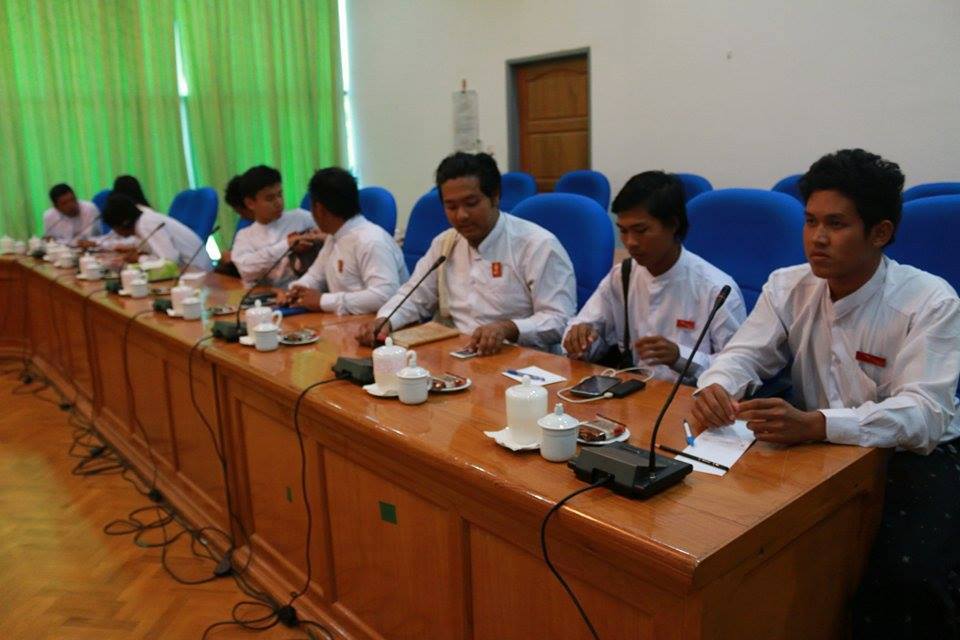Student groups and observers have welcomed the news that four-way negotiations on the National Education Law have been agreed following a meeting in Naypyidaw on Wednesday.
A pre-negotiation meeting was attended by government officials, led by the Union Minister Aung Min, and representatives from the CDEM, the group spearheading the movement calling for a revision of the controversial law. Min Ko Naing and Mya Aye, leaders of the activist group 88 Generation Peace and Open Society (88GPOS), acted as observers at the event.
“The government has agreed to hold the quadripartite dialogue to discuss our demands, and to find answers to the issues surrounding the National Education Law. We take it that our voice has been heard,” Phyo Phyo Aung, the All Burma Federation of Student Unions general secretary who was in attendance in Naypyidaw, told DVB.
The joint statement commits to dialogue between representatives of the government and parliament, CDEM and the Network for National Education Reform.
The round of talks will begin on 1 February in Rangoon. The students’ eleven-point list of demands concerning the National Education Law will be discussed, including decentralisation of decision-making power and an increase in education spending of up to 20 percent of the overall national budget.
Thu Ta of the All Burma Teachers Federation gave approval of the statement, telling DVB, “We welcome the negotiations in the essence of democracy, and believe that a mutual discussion will prove successful.”
The government and student signatories have declared their intention to engage with each other positively and to “find agreements though negotiation.”
The Union Minister Aung Min said, “There was not a single argument in the meeting. This indicates a mutual cooperation between both sides. We can say this meeting was successful.”
[related]
Student groups have agreed that their coordinated protests, which have seen an increasing mobilisation of student activists across the country in recent days, will stop on the day of the meeting.
Mya Aye, the 88GPOS member who also signed in the joint statement, said: “I see that the government and students found a way to solve the issue peacefully through negotiation. This signifies that the political culture President Thein Sein often mentions is starting to take shape.”
Thein Sein last week urged parliament to reconsider the controversial law, calling for a review and amendments to the law to reflect student demands, namely: to loosen the centralisation of policymaking; allowing the formation of teacher and student bodies; the promotion of schooling for all children in the country; and the promotion of ethnic literature.
Wednesday’s meeting was granted as a concession from a group of students from Mandalay – estimated to number between 400 and 1,000 – who were met with a police blockade as they march to Rangoon to protest the National Education Law. They agreed to the talks in exchange for safe passage in to the town of Taungtha in Mandalay Division. Buddhist monks have also joined the students.
A group of students holding demonstrations at Pakokku University in central Burma told DVB they have decided to postpone their planned march to Rangoon in light of the results of the recent talks.
Another group of student protesters in the southern Burmese coastal town of Tavoy (commonly known as Dawei) have also said that they are standing down for the moment, while stressing that the wider demonstrations may continue.



